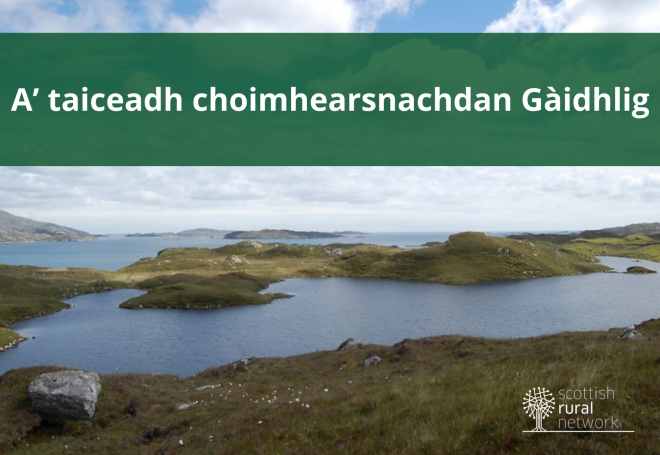Supporting Gaelic communities

Improving the understanding of the challenges facing Gaelic-speaking communities and considering wider initiatives to provide more social and economic opportunities for these communities is vital to Scotland.
A Short Life Working Group on Economic and Social Opportunities for Gaelic has been set up and will have representation from a range of sectors with experience of working and living in Gaelic communities.
Iseabail Mactaggart will chair the group which will help deliver on the ambitions of the new 10 year National Strategy for Economic Transformation, which sets out Scotland’s aim to have one of the most successful and thriving economies in the world and ensuring all of Scotland benefits from investment in the skills and industries of the future.
Economy Secretary Kate Forbes launched the new group during a visit to open the Galson Estate Business Centre on the Isle of Lewis. She said:
“As a speaker of language I know how much Gaelic is a vital part of Scotland’s cultural identity, and our aim is to create a secure future for Gaelic by supporting those who speak the language.
“We want to inspire and enable everyone across Scotland to contribute to, and benefit from, a more prosperous, productive and internationally competitive economy, working in a culture that rewards and celebrates innovation and initiative.
“Scotland must be a country where economic opportunities are distributed fairly across our regions, cities and towns and our rural and island communities. We need people to be at the very heart of an economy that works for everyone, no matter where they live, what community they’re part of or what their aims and objectives are, so they can share in our national success.
“The Group’s expertise will be hugely valuable in identifying economic opportunities which will help strengthen our Gaelic communities across Scotland and I am looking forward to hearing their recommendations.”
Head of Multiplatform Content at MG ALBA Iseabail Mactaggart said:
“Gaelic-speaking communities across Scotland have a long history of being resourceful and innovative in outlook, and that has created impact within these communities and beyond. I’m looking forward to exploring approaches and listening to a wide range of ideas and expertise, so that with the group members we articulate useful recommendations that will create meaningful impact and build on valuable work to date. We aim to identify economic and social opportunities that will see Gaelic strengthened, and with that Gaelic-speaking communities, and equally, we aim to suggest initiatives that will support economic and social outcomes in these communities, and with that, the language.”
BACKGROUND
It is an independent group and the Members of The Short Life Working Group on Economic and Social Opportunities for Gaelic are:
Iseabail Mactaggart, MG ALBA, Director of Multiplatform Content (Chair) - Iseabail is chairing the group in a personal capacity.
Arthur Cormack, CEO of Fèisean nan Gàidheal
Faye MacLeod, Campbell, Stewart, MacLennan & Co, Accountants
Iain MacRury, Salar Smokehouse, Eilean Dorcha Festival
Cllr Calum Munro, Highland Council
Joanna Peteranna, HIE Area Manager Innse Gall
Agnes Rennie, Chair, Urras Oigreachd Gabhsainn


